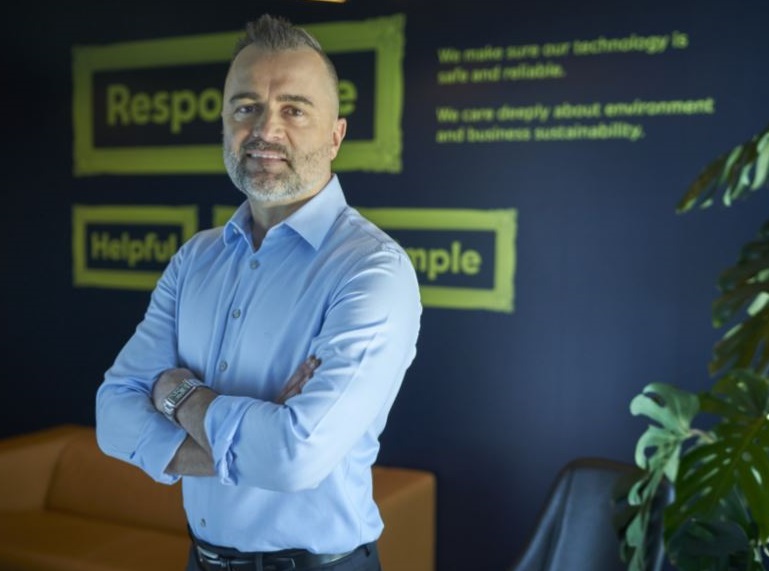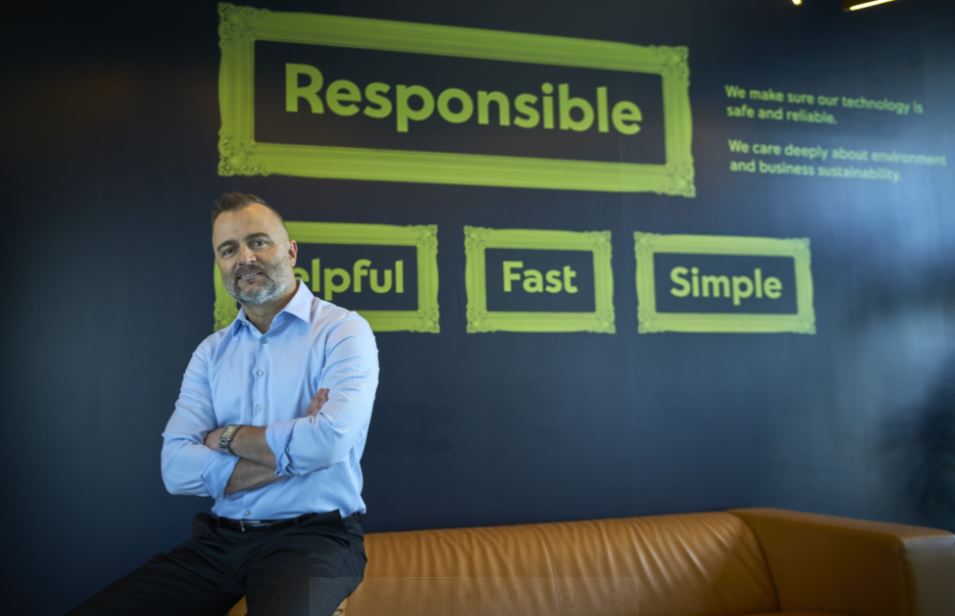Mike Michel, President of the Foreign Investors Council and CEO of Yettel
I Choose To Be An Optimist
The country needs strong economic growth through sustainable fiscal consolidation and the continued privatisation and corporatisation of public enterprises and the reform of public administration. This will all have a significant impact on overall macroeconomic indicators. The situation may appear challenging, but I’m an optimist.
 Economies worldwide have been rocked by several events, such as the pandemic, the situation in Ukraine, rising prices and market changes. Recovery from the pandemic was expected to continue in 2022 and 2023, aided by an upsurge in vaccination and macro-economic measures. However, according to Mike Michel, president of the Foreign Investors Council and CEO of Yettel, “the latest events will force many governments to think about energy prices, diversifying energy sources and ways to increase efficiency wherever possible”.
Economies worldwide have been rocked by several events, such as the pandemic, the situation in Ukraine, rising prices and market changes. Recovery from the pandemic was expected to continue in 2022 and 2023, aided by an upsurge in vaccination and macro-economic measures. However, according to Mike Michel, president of the Foreign Investors Council and CEO of Yettel, “the latest events will force many governments to think about energy prices, diversifying energy sources and ways to increase efficiency wherever possible”.
We are going through challenging times at the global level, with the impact being felt by each and every economy. What would you suggest to the Serbian government in its efforts to further improve the business environment?
Economies around the world have been hit by a range of factors, including the pandemic, the situation in Ukraine, rising prices and market shifts. Prior to the recent conflicts, global recovery from the pandemic had been expected to continue in 2022 and 2023, helped by continued progress in vaccination efforts and supportive macroeconomic policies. The latest events will force many governments to think about energy prices, to diversify energy sources and to increase efficiency wherever possible.
When it comes to efficiency, there are things we can do to improve the business environment in Serbia, regardless of the circumstances. The country needs strong economic growth enabled by sustainable fiscal consolidation. This can be made sustainable through the implementation of deep structural reforms. The privatisation and corporatisation of public enterprises and reform of public administration will have a significant impact on overall macroeconomic indicators. I would suggest that the Government keep this as its priority in the challenging times we are facing, as well as to continue insisting on digitalisation. We want Serbia to have a predictable business environment, to accelerate reforms, and to work on sustainable fiscal consolidation and the implementation of laws. We need to motivate businesses by creating a business-friendly environment with reduced bureaucracy. Even though the pandemic accelerated digitalisation like never before, even though we have the highest number of electronic transactions, the greatest usage of digital wallets, and much more, there are still things that we can improve in order to have an even more digitalised society. Things may appear challenging, but I am an optimist; I choose to be one.
All our concrete proposals and activities are aimed at harmonising our legal regulations with the European Union. EU integration must be our key priority, both for Serbia and the entire region. What’s most important is for the EU to continue to be an ally when it comes to investments in Serbia
Serbia’s macroeconomic policy is, to a large extent, more connected to the EU enlargement process today than ever before. Given your expertise in this field, what would you single out as the major areas that need to be aligned with EU standards?
It goes without saying that all our concrete proposals and actions are aimed at the harmonisation of domestic and EU legislation. EU integration must be our key priority. This is as important for Serbia as it is for the entire region. Digitalisation, transport, infrastructure, tax administration, trade, and construction are just some of the areas in which we share common interests, and we can learn a lot from the EU.
In 2021, the Serbian economy remained closely integrated with the EU, as Serbia’s most important trading partner. The EU accounted for about 61% of Serbia’s total trade in 2021. EU investors remain leaders in Serbia, with 68% of total FDI between 2010 and 2020.
On the flip side of that coin, in which areas would EU support be most beneficial to Serbia?
What would benefit us most is to continue having the EU as an ally when it comes to making Serbia a great place to invest. We must continue working together on securing a stable and predictable business environment, fair competition, a level playing field – generally doing everything possible to improve the Serbian investment and business climate.
When it comes to improving the business climate, what were the major achievements of the Serbian Government in the period behind us, and what lessons can be learnt from these examples?
The business community expects that even faster reforms will continue as soon as possible. We are fully aware of all the challenges that the Serbian Government is facing. However, our priority is and will remain the improvement of the business environment in Serbia, because we believe that this is the only way to improve the overall state of the Serbian economy in the long run. So, again, continuing and accelerating accession negotiations with the EU, along with work on sustainable fiscal consolidation and an improvement in implementing laws. Anything that has been prescribed in legislation must be applied, rapidly and without exemptions.
How important has the joint FIC-Serbian Government Task Force function been in the period behind us, and what do you expect when it comes to the implementation of FIC recommendations in 2022?
The Task Force has become an institutional mechanism for continuous and successful dialogue between the Government and business. It is the keeper and guardian of our dialogue, making sure that we track the processes and that everybody is doing their part of the job. The FIC won’t stop looking for new opportunities to help and contribute, while the Task Force is here to help us make sure we are all on track.
The strength of the Foreign Investors Council is that we are able to quickly, effectively and expertly give recommendations on how to overcome any crisis, always having in mind the benefits for all sides
Looking back to your association’s work over the past two decades, what would you single out as the FIC’s key regulatory achievements during this period?
When I look back at the past two decades, I would say that our biggest achievement has not been one thing, one regulation that has been improved, or one law, but the fact that, for 20 years, we have been the permanent, consistent and unified voice of more than 120 top companies in Serbia; our strength is that we are able – quickly and with flexibility and expertise – to give recommendations on how to overcome any crisis, always having in mind the benefits for all sides. Foreign investments make up 40% of all investments in Serbia, with EU businesses representing almost 70% of all foreign direct investments. Also, our flagship product, the White Book, is a great platform aimed at driving change. It has been an enormous effort by top business leaders in the country who are extraordinarily enthusiastic about making real changes and using their vast experience while sharing their knowledge. For me, the amount of effort that the teams put into the job every year is astounding.
What new challenges and tasks have you set for the FIC in the coming period?
In the coming period, FIC focus will be on furthering digitalisation in all areas and the corporatisation of public companies. We just recently formed the ninth committee, the Tourism and Hospitality Working Committee, as this area with very high prospects, and strong effects on overall economic happenings, faced a lot of challenges in the last period. Also, the Green Agenda for the Western Balkans is also important for us, as part of the EU development strategy known as the Green Deal, which includes climate action, with decarbonisation, energy and mobility, but also the circular economy.
What has changed and what has remained the same when it comes to the way the FIC is structured?
As I mentioned, we just recently formed our Tourism and Hospitality Working Committee. The years 2020 and 2021 were difficult and challenging for Serbian tourism, especially when it comes to urban areas. The Government of the Republic of Serbia has made certain efforts to amortise the losses of the tourism and hospitality industry and, above all, preserve employment in the industry. At the same time, tourist demand has changed and competitive pressure is intensifying. It is necessary to improve the competitiveness of Serbia as a tourist destination. The committee is due to establish close dialogue, primarily with the Ministry of Trade, Tourism and Telecommunications, the Ministry of Finance, the Ministry of Labour, Employment, Veterans and Social Affairs, as well as with the Ministry of Environmental Protection, the Ministry of Culture, the World Bank Office, the UN and the OECD office, among others, if necessary.
 The CSR activities of businesses are increasingly in the focus of society. What are the key values embraced by your members?
The CSR activities of businesses are increasingly in the focus of society. What are the key values embraced by your members?
I believe that companies in general, our members included, will focus on a strategic approach, which means creating more systematic solutions, based on the needs of local communities and employees. The green agenda is extremely important for the Western Balkans. The green agenda includes climate action, with decarbonisation, energy and mobility; the circular economy; biodiversity; combatting air, water and soil pollution, and, finally; sustainable food systems and rural areas. Green is the key word for growth, jobs and health. Investing in the environment and climate change is investing in the future, because the cost of inaction would be much higher.


